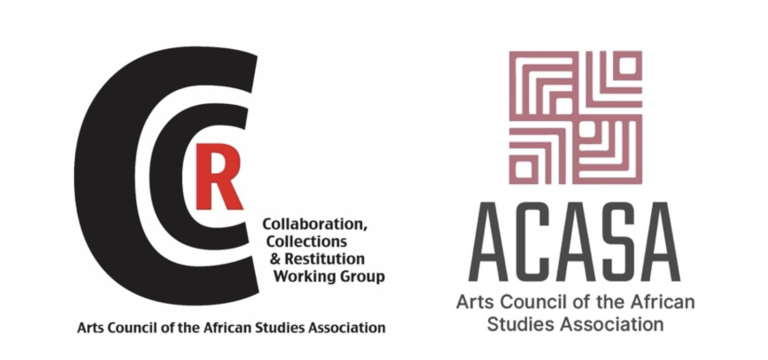ACASA releases Best Practice Guidelines for Provenance Research and Restitution

Responding to an urgent and growing need for guidance on ethical stewardship of African collections in museums, the Arts Council of the African Studies Association (ACASA) has produced best practice guidelines for provenance research and restitution.
The new resource, the first-ever for museums in the United States, emphasizes collaboration and communication with Africa-based peers, descendant communities, and other knowledge-holding constituents in assessing and determining the futures of collections. Developed with support from the Mellon Foundation, this foundational document is publicly accessible and recommended for sharing with all U.S. collecting institutions.
The guidelines were developed over a three-year period by a working group of over seventy specialists from the United States, Africa, and Europe. The initiative began in 2021 and was informed by ongoing dialogue with Africa-based institutions, professionals, and community members. The final document, ratified by ACASA in August 2024, encourages museums to uphold their ethical responsibilities in their stewardship of African objects, in addition to any legal requirements. This includes promptly responding to return concerns and claims. It also recommends that U.S. museums demonstrate an institutional commitment to:
- transparency regarding collection holdings and information about object histories
- working with interested parties on the African continent on collaborations, including returns, within this field-wide framework of accepted practice
- prioritizing research on collection holdings
- disseminating information about African arts collections in accordance with ethical computing standards
The resource includes guidance on provenance research, criteria and parameters for determining research priorities, case studies with recommendations, and resource material on relevant law and policy precedents.
Chika Okeke-Agulu (Princeton University), a leading international voice on African restitution, hailed the guidelines as “the most ambitious initiative ever by ACASA.” He added, “In its depth and scope, I can say that no one in the U.S. has gone this far to provide a compelling road map, a useful pathway to the complex matter of restitution and repatriation of looted African cultural heritage.”
Erica P. Jones (Fowler Museum at UCLA) and Amanda Gilvin (Davis Museum at Wellesley College), who co-led the working group that produced the document, expressed gratitude to the “many ACASA members who sought ways to honor past makers, descendent communities, and diaspora communities by embracing the push toward ethical returns. After over a century of requests, negotiations, and debates, we hope that this guidance will be an important step towards reshaping museological practice.”
ACASA’s current President, Paul Basu (University of Oxford), emphasized that the publication is only part of ACASA’s ongoing work to expand dialogues and networks with African institutions and communities. “The need to put ethics at the center of scholarship and collections stewardship is clear, and ACASA is well placed to play a central role in advocating for, sharing information and advice, and even coordinating training in all matters relating to provenance research and restitution. This important work is a key part of ACASA’s future vision.” As an immediate next step, ACASA will work toward the creation of a digital resource that will help Africa-based institutions and communities connect with African objects in U.S. museum collections.
